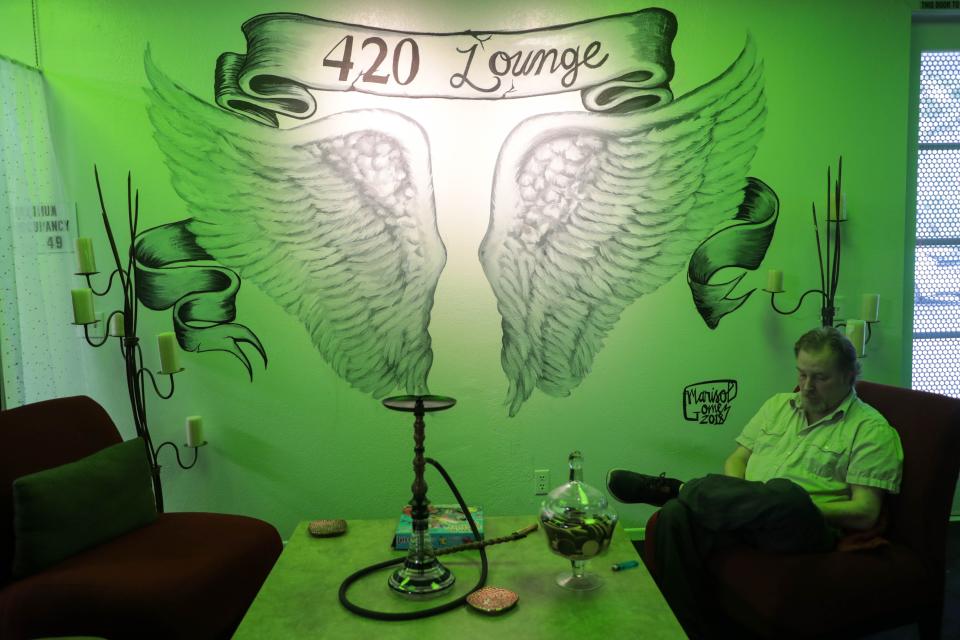Gov. Gavin Newsom signed the bill into law in September and it took effect on Jan. 1. The law has drawn comparisons to the “coffee shops” of Amsterdam that sell marijuana products and allow customers to spend hours on the premises.
Cannabis advocates hope that by allowing people to do more than just smoke in dispensaries, local businesses can benefit, along with the local nightlife.
“It’s just a more wholesome use of this space,” said Jocelyn Kane, vice president of the Coachella Valley Cannabis Alliance Network. “We’re trying to normalize consumption as opposed to making it seem like, ‘I have to go in this little dark space and use my cannabis and then go home.'”
The change in the law is the latest adjustment state and local leaders have made following the legalization of recreational marijuana use in 2016. During the COVID-19 pandemic, dispensaries saw a boom in new openings and sales, but that has since cooled due to an oversaturated market and cheaper prices on the black market. In the fall of 2023, Palm Springs instituted a moratorium on new dispensaries, and last year the city halved taxes on cannabis sales in an effort to help local businesses.
In addition to Palm Springs, Indio, Coachella, Desert Hot Springs and Cathedral City allow cannabis lounges, which provide a place for customers to consume the products they buy onsite.
Desert Hot Springs in particular has already prepared for the state allowing food and beverages being served within lounges.
Deputy City Manager Doria Wilms said the city’s ordinances, initiated in 2021, considered the possibility that the state would allow consumption lounges in the future.
“The City of Desert Hot Springs is ready to assist cannabis operators and entrepreneurs looking to open a consumption lounge with a streamlined process to become operational,” Wilms wrote in an email to The Desert Sun.
For the proprietors of dispensaries with lounges, the new state law offers an intriguing opportunity to expand their customer base.
H/T: www.yahoo.com



